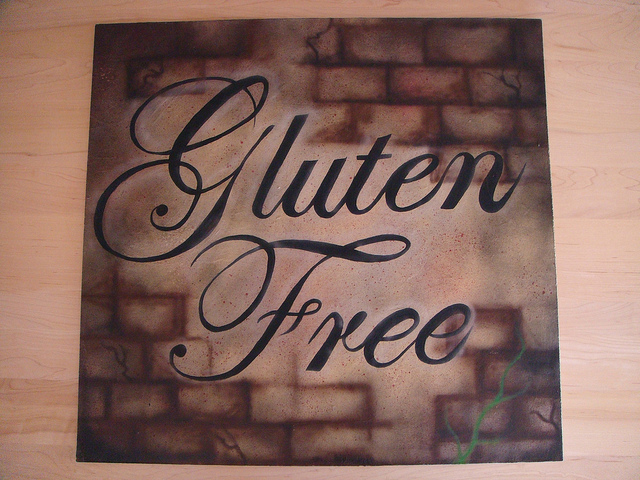Dealing with food allergies: learning to live a gluten-free lifestyle
Author: LaGeris Underwood Bell
Published: Oct 22 2013
After months of planning, the big day is here: it’s your daughter’s tenth birthday, and everyone has joined you at her favorite family restaurant. They bellowed the Happy Birthday song, she blew out the candles, then ate a piece of her birthday cake. That’s when it all went wrong. Gluten! Despite your careful instructions to the restaurant about the ingredients and her allergy to gluten, they served up a gluten-filled cake!

According to US national statistics, between 5-10 percent of all people may suffer from a gluten sensitivity of some variety and it’s estimated that up to 97 percent of those who have Celiac Disease are actually undiagnosed. With a huge section of the population suffering, the demand for gluten-free products has skyrocketed over the past few years. But how do you tell if you’re one of the many undiagnosed suffers, and where do you start if you are?
What Is Gluten?
Gluten is actually a protein that is commonly found in wheat, barley and rye. It is used in a surprising amount of items throughout the grocery store, including breads, cakes, beer, cookies, pastas and many others. Finding a full list of gluten-free foods is easy with a quick search of the Internet, and be sure to always read the labels of unknown foods. These days many items are labeled as gluten-free to help you out.
Am I Sensitive To Gluten?
There are many signs that can indicate if you are sensitive to gluten, but some of the most common in both adults and children are digestive issues such as gas, bloating, diarrhea, and constipation after eating meals that contain gluten. Sufferers also frequently complain of fatigue and headaches. If you are concerned about any of these symptoms, a quick trip to your doctor can help to give you a more reliable diagnosis.
How Can A Gluten Free Diet Help?
By cutting gluten out of your diet, you may be able to alleviate some of the uncomfortable digestive issues that you have been dealing with. There are also those that claim that, even though not sensitive to gluten, that limiting the amount present in their diet offers a healthy lifestyle, as it tends to cut out many processed foods. Try focusing your diet on fresh, healthy foods such as fruits, vegetables, pulses, fresh meats and most dairy products.

What Do I Do If I’m Accidentally Exposed to Gluten?
If you make your diet requirements known at restaurants and fast-food establishments, they should be able to advise and accommodate you on choices that are within your diet. However, if, like the birthday girl above, you or a loved one are negligently exposed to gluten while dining out, you might consider seeking legal advice.
Log onto http://www.virginia-personalinjurylawyer.com/ and consult a personal injury attorney to find out what your next course of action should be. If you are at all concerned about your level of accidental exposure, you should also check with your doctor for what your next steps should be.
Following a gluten-free lifestyle doesn’t have to be a chore. By exploring a wide range of fresh, unprocessed foods, you will find new items that will tantalize your taste buds. There are also a huge range of ideas and recipes online, should you want to learn more.
Writer and organic food enthusiast LaGeris Underwood Bell is still rather "green" about the green lifestyle, but is enjoying the process of learning and adapting eating habits for improved health and vitality.
Photo credit #1: http://www.flickr.com/photos/spool32/5045502202/
Photo credit #2: http://www.flickr.com/photos/lipstickproject/5650273323/
***RESPONSIVE_AD***This article is published on the basis that the supplied content is the original work of the author / provider. If you feel that copyright has been infringed, please contact the site administrator.
B-0
